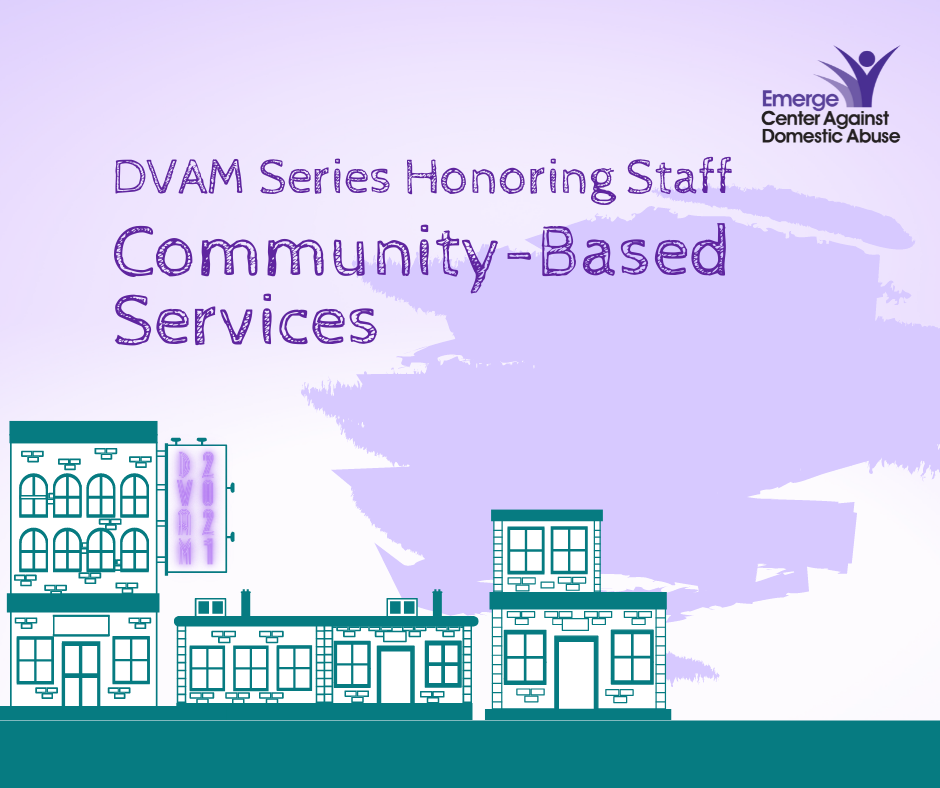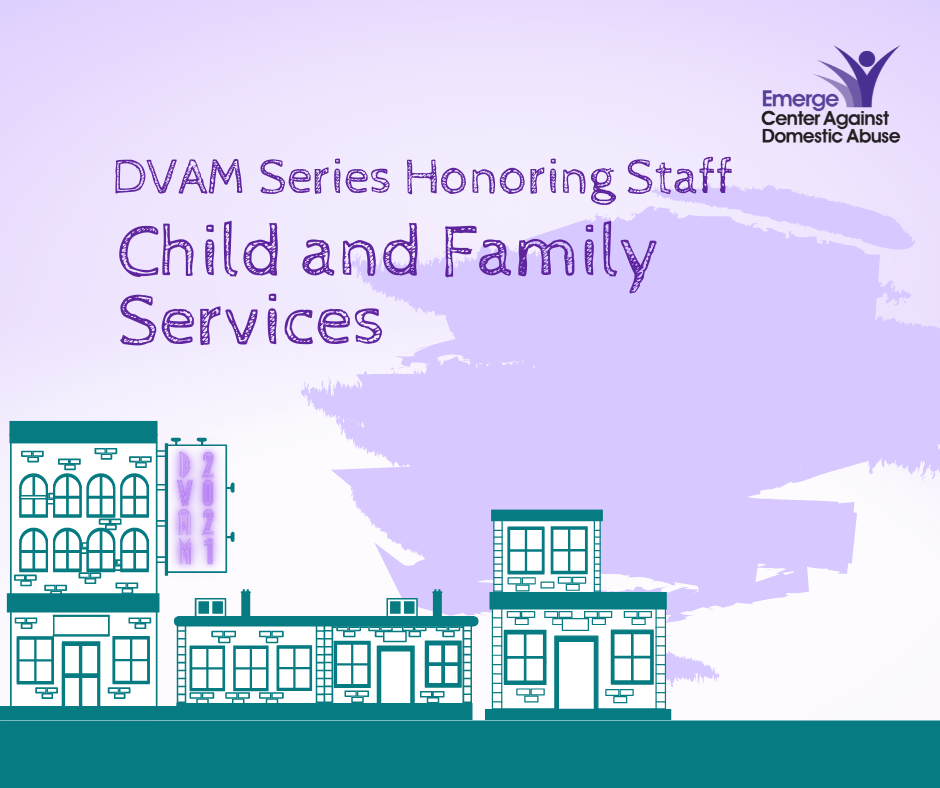Emerge Staff Share Their Stories
This week, Emerge features the stories of staff working in our Shelter, Housing, and Men’s Education programs. During the pandemic, individuals experiencing abuse at the hands of their intimate partner have often struggled to reach out for help, due to increased isolation. While the whole world had to lock their doors, some have been locked in with an abusive partner. Emergency shelter for domestic abuse survivors is offered to those who have experienced recent incidents of serious violence. The Shelter team had to adapt to the realities of not being able to spend time with participants in person to talk with them, reassure them and provide the love and support they deserve. The sense of loneliness and fear that survivors experienced was exacerbated by the forced isolation due to the pandemic. Staff spent many hours on the phone with participants and ensured that they knew the team was there. Shannon details her experience serving participants who lived in Emerge’s shelter program during the last 18 months and highlights lessons learned.
In our housing program, Corinna shares the complexities of supporting participants in finding housing during a pandemic and a significant affordable housing shortage. Seemingly overnight, the progress that participants made in setting up their housing disappeared. Loss of income and employment was reminiscent of where many families found themselves when living with abuse. The Housing Services team pressed on and supported families facing this new challenge in their journey to find safety and stability. Despite the barriers that participants experienced, Corinna also recognizes the amazing ways our community comes together to support families and the determination of our participants in seeking a life free from abuse for themselves and their children.
Finally, Men’s Engagement Supervisor Xavi talks about the impact on the MEP participants, and how difficult it was to use virtual platforms to make meaningful connections with men engaged in behavior changes. Working with men who are harming their families is high-stakes work, and requires intention and the ability to connect with men in meaningful ways. This type of relationship requires ongoing contact and trust-building that was undermined by the delivery of programming virtually. The Men’s Education team quickly adapted and added individual check-in meetings and created more accessibility to MEP team members, so that men in the program had additional layers of support in their life as they also navigated the impact and the risk that the pandemic created for their partners and children.



